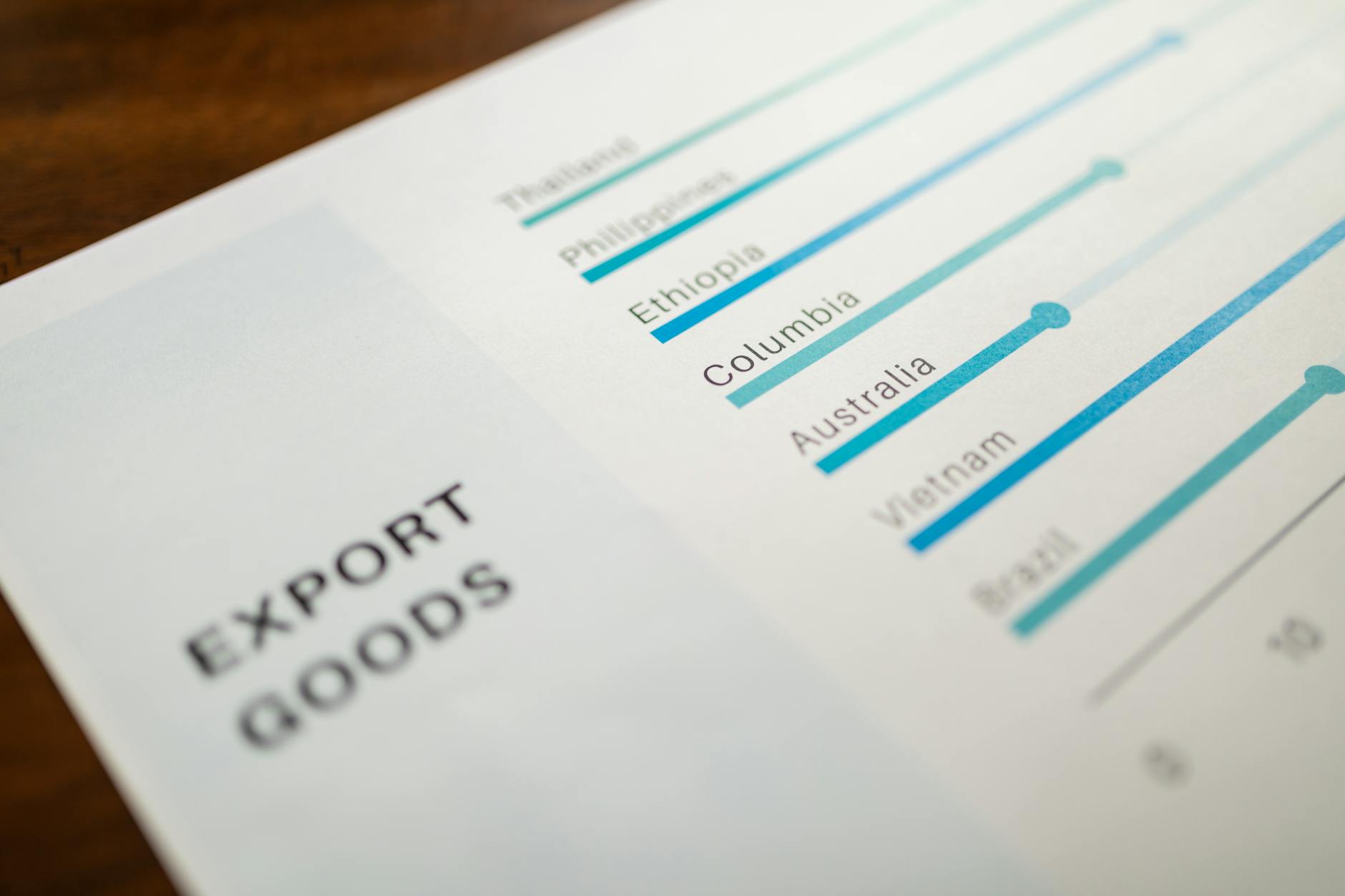Apple’s AI Tool Error: What It Means for Global AI Reliability
March 1, 2025How AI Is Reshaping Healthcare: Innovations, Challenges, and the Road Ahead
March 31, 2025Artificial Intelligence is no longer reserved for tech experts. It’s becoming part of everyday life worldwide, streamlining tasks, and boosting productivity. From organizing complicated projects to helping with simple errands, AI tools make life easier and more efficient. Platforms like the AI Consulate provide resources to keep users informed on how AI is shaping industries globally and in regions like Japan.
Starting with AI: Fundamentals to Grasp
AI, short for Artificial Intelligence, is no longer confined to labs and tech companies. It’s used in apps, gadgets, and services you encounter daily. Understanding its basics ensures you’re not left behind in this age of rapid innovation.
What is AI and Why It Matters
AI refers to machines that mimic human intelligence to complete tasks. From recognizing your voice to suggesting movies, AI already plays a role in everyday life. For example, virtual assistants like Siri or Alexa use AI to interpret and respond to questions. In customer service, chatbots help answer questions in real time.
AI’s ability to analyze vast quantities of data quickly opens up endless opportunities. It’s shaping industries worldwide, including healthcare, where AI scans medical records to identify trends, or in transportation, where AI is tested for autonomous vehicles. For a broad look at AI’s significance, this guide on artificial intelligence provides in-depth insights.
Free Tools to Experiment With
For beginners, experimenting with AI doesn’t require any coding. Several free tools make it possible to test its potential:
- ChatGPT: This conversational tool lets users interact with AI using simple language. It’s perfect for brainstorming ideas or learning answers.
- DALL-E: Great for generating images from text descriptions, perfect for creative projects.
- Grammarly: A writing assistant that uses AI to improve grammar, clarity, and tone.
These tools offer a hands-on way to see what AI can do. For more advanced engagement, you can explore specific platforms like the AI Consulate for resources and tips.
Basic Prompting Techniques
Effectively communicating with AI is key to getting helpful responses. Here are a few basic prompting techniques:
- Be Specific: Instead of asking “What can AI do?”, ask, “Explain AI’s role in improving medical records management.” Detailed prompts yield better results.
- Use Step-by-Step Instructions: Break down your queries into clear steps. AI systems follow structured inputs more efficiently.
- Describe Your Needs Clearly: Specify what type of output you want. For instance, “Write in an engaging tone and provide bullet points.”
Learning these techniques ensures confident interactions with AI. It also helps avoid frustrations when exploring its vast potential. For further examples of why AI prompting matters, visit this resource on Why AI is Important.

Photo by Google DeepMind
Productivity Hacks Through AI
AI is reshaping how tasks are managed, especially when it comes to maximizing productivity. Its ability to handle repetitive chores, spark creativity, and help with planning makes it a valuable tool for anyone looking to optimize their day.
Streamlining Tedious Tasks: AI Tools for Simplifying Work
Do repetitive tasks consume your time? AI tools can help you focus on more meaningful activities. From managing your inbox to scheduling meetings, these tools turn hours into minutes. Here’s a quick list of widely-used AI programs designed to save time:
- Grammarly: Streamlines email writing with real-time grammar and tone adjustments.
- Zapier: Automates workflows by connecting apps, so repetitive processes run smoothly on their own.
- Calendly with AI integration: Facilitates hassle-free scheduling without a back-and-forth.
Need more ideas? Check out this comprehensive list of AI productivity tools in 2023. Tools like these bring time-saving solutions to both professionals and students.
Creative Assistance with AI
Feeling stuck while brainstorming or creating content? AI is like having an extra brain with endless ideas. It supports creativity in ways you might not expect, such as generating blog posts, art, or even ad copy.
- ChatGPT: Generates polished text or content in seconds with context-based prompts. Use it to create blog topics or polish drafts.
- DALL-E 2: Converts descriptions into artwork, handy for presentations or marketing assets.
- Canva Magic Write: This AI-powered writing aide assists with drafting visuals or captions for social media.
For more exploration, Forbes highlights some under-the-radar tools in their article about AI productivity tools you should be using. These provide innovative ways to boost creativity.

Photo by Matheus Bertelli
Smart Use of Scheduling and Planning Aids
Organizing tasks used to demand constant attention, but now AI simplifies it. AI-powered schedulers combine convenience and precision to ensure calendars are optimized and manageable.
- Notion AI: Helps structure plans with intelligent task segmentation.
- Clockwise: Uses AI to manage your calendar and recommend ideal meeting times tailored to your work patterns.
- Todoist AI: Prioritizes tasks intelligently, suggesting what to tackle based on urgency and importance.
According to Fellow’s blog on AI productivity tools, these options enable you to work smarter, staying ahead of demanding schedules while maintaining efficiency.
By leveraging these tools, individuals can see significant time and resource savings. Whether for balancing creative projects or optimizing daily to-dos, AI offers reliable assistants to streamline work management worldwide.
How to Stay Safe and Ethical with AI
Artificial Intelligence is transforming lives and industries worldwide, but it comes with risks that users must navigate responsibly. From protecting privacy to maintaining a healthy balance between manual tasks and AI-powered processes, staying safe and ethical starts with understanding practical actions to take.
Safeguarding Your Personal Data: Tips on Ensuring Secure Use of AI Tools and Privacy Settings
Using AI tools can be incredibly beneficial, but they also pose risks to personal data privacy. Proper precautions ensure your information doesn’t fall into the wrong hands.
-
Review Privacy Policies: Before using any AI tool, read its privacy policy. Focus on how it collects, uses, and stores your information.
-
Customize Privacy Settings: Most platforms let you adjust privacy settings. Limit data collection where possible, and disable unnecessary features.
-
Avoid Sharing Sensitive Information: Never input details like full names, Social Security numbers, or addresses into AI systems unnecessarily. Treat AI like any online interaction when it comes to confidentiality.
-
Monitor Data Usage: Be proactive in reviewing application permissions and the kind of data shared with these tools. Tools like Navigating the Landscape of Medical AI and Health Data Security offer strategies specific to AI in areas like healthcare.
-
Utilize Encryption Tools: Many AI solutions now have built-in encryption features to protect user data from leaks. Learn how to use these effectively. Additionally, platforms like Guidelines for Secure Use of AI provide actionable advice on managing these risks sensibly.

Photo by Markus Winkler
Avoiding Overdependence: Discuss Why and How to Maintain a Balance Between AI Use and Manual Tasks
AI’s convenience can make it tempting to rely on it for everything, but overdependence can be counterproductive. Maintaining balance ensures better decision-making and preserves critical thinking.
-
Set Boundaries: Reserve AI for repetitive, time-consuming tasks such as scheduling or data sorting. Leave complex decision-making or creative work to yourself.
-
Develop Manual Skills: Relying heavily on AI can reduce skills like problem-solving and adaptability. Schedule time to handle tasks manually to stay sharp.
-
Cross-Check AI Output: AI tools can make mistakes or generate biased results. Always review and verify their work before applying it.
-
Blend AI and Personal Input: Think of AI as an assistant, not a replacement. Use it to complement your abilities rather than overpower them. Understanding tools like the AI Consulate in Japan highlights how technology can support industries worldwide without overshadowing human efforts.
Staying safe and ethical with AI requires mindfulness in both data management and how it’s integrated into daily work. By adopting these practices, users make more informed and secure decisions about AI interactions while ensuring balance in its usage.
Global Reach: AI Adoption Trends
Artificial Intelligence (AI) is expanding rapidly, with adoption trends showcasing its integration into global industries. Across the world, countries are pushing boundaries and implementing AI to modernize sectors like healthcare, manufacturing, and education. This section explores the crucial role of AI consulates and takes a closer look at Japan’s leadership in AI development.
The Role of AI Consulates Worldwide

Photo by RDNE Stock project
AI consulates play a pivotal role in fostering collaboration and knowledge sharing among regions. These institutions act as hubs, linking businesses, governments, and educational bodies to unlock the potential of Artificial Intelligence. By offering workshops, sharing research updates, and facilitating cross-border discussions, AI consulates ensure that expertise transcends geographical boundaries.
Through their programs, they also create opportunities for less industrialized nations to participate in global technological advancements, breaking barriers in access and inclusion. Many AI consulates provide online platforms and resources, ensuring even remote participants can benefit. Industries worldwide consult these hubs for navigating strategies on ethical implementation, workforce training, and integrating AI in specific ecosystems. For further details on AI initiatives worldwide, check out The State of AI in 2024.
Japan’s AI Leadership
Japan commands a prominent position in AI development, regularly demonstrating its technological dominance. The country’s progress in robotics and AI-driven system designs is widely acknowledged. With ambitious government initiatives like the “Society 5.0” program, Japan strategically leverages AI to create smart cities and improve life quality through automation and digital transformation.
Japanese corporations are leading innovation in AI hardware, such as semiconductors and sensors, which fuel advancements in robotics. Cities like Kyoto and Tokyo are emerging as innovation zones, hosting global conferences and pioneering AI-driven healthcare systems. You can explore insights further on AI implementations through AI Adoption Statistics 2024.
Japan’s balanced focus on development and ethical adaptation makes it a standard-bearer for responsible AI integration. This not only influences neighboring Asian economies but also sets a global example on harmonizing innovation with public good.
Making AI Work for You
Artificial Intelligence (AI) is only as effective as the effort you put into utilizing it. Whether managing personal tasks or learning new skills, the right approach transforms AI into an indispensable productivity tool. In this section, readers will find actionable tips for using AI to its full potential in both personalized and specialized contexts.
Specialized Role-Playing Prompts
Using AI efficiently often starts with how you instruct it. The key lies in creating prompts that mimic specific roles the AI should play for optimum results. Think of your AI assistant as someone taking on a job—whether that’s a project researcher, event planner, or teacher.
Here are a few examples of prompts tailored to specialized tasks:
- Research: To conduct deep research, prompt AI with “Act as a legal researcher. Summarize the latest privacy laws in Europe and explain how businesses can stay compliant.”
- Event Planning: Need an itinerary? Use, “Create a weekend travel itinerary for Paris, including must-see spots and local dining recommendations.”
- Content Creation: For blog posts, try, “Draft 10 creative headlines for an article about eco-friendly home hacks for busy families.”
Fine-tuning prompts ensures the responses directly align with your intended goals. Over time, this becomes second nature, letting you tackle even more complex projects confidently. For further tips on personalizing tools for your profession, consider reviewing this insightful guide.
Personalizing AI Tools for Daily Tasks
AI becomes more powerful when it mirrors your unique preferences or workflow. Fine-tuning settings and exploring custom features enhance its usability significantly. Modern AI tools often include adjustable settings or extensions that make them adaptable for various needs.
Start with these personalizations:
-
Configure Output Styles: Whether writing, summarizing, or brainstorming, many AI platforms allow users to modify tone and format. For instance, setting ChatGPT to create conversational versus formal text changes its approach dramatically.
-
Add Plug-ins or APIs: Integrate extensions on platforms like Google Sheets or CRMs to personalize workflows, combining creativity with efficiency.
-
Enable Smart Suggestions: Some tools like Grammarly allow you to tailor feedback for industry-specific writing styles, making suggestions incredibly relevant.
-
Feedback Loops: Tools learn from your input too! Regular custom feedback refines AI suggestions over time, saving time and effort.
Efficient personal customization ensures AI tools align with dynamic daily needs, from automating small errands to tackling larger professional challenges. For more on enhancing workplace AI integration, see this piece on how to make AI work for you at work.
Through refined AI practices and personalization, anyone can make this technology less of a tool and more of an ally in achieving everyday success.
Conclusion
AI offers widespread benefits, from improving everyday tasks to reshaping global industries. By integrating AI thoughtfully, individuals and businesses can unlock unprecedented efficiency and creativity.
Staying informed through platforms like the AI Consulate ensures smarter, safer adoption. AI’s growing role worldwide calls for balancing its utility with responsible practices, fostering a future that works for everyone.